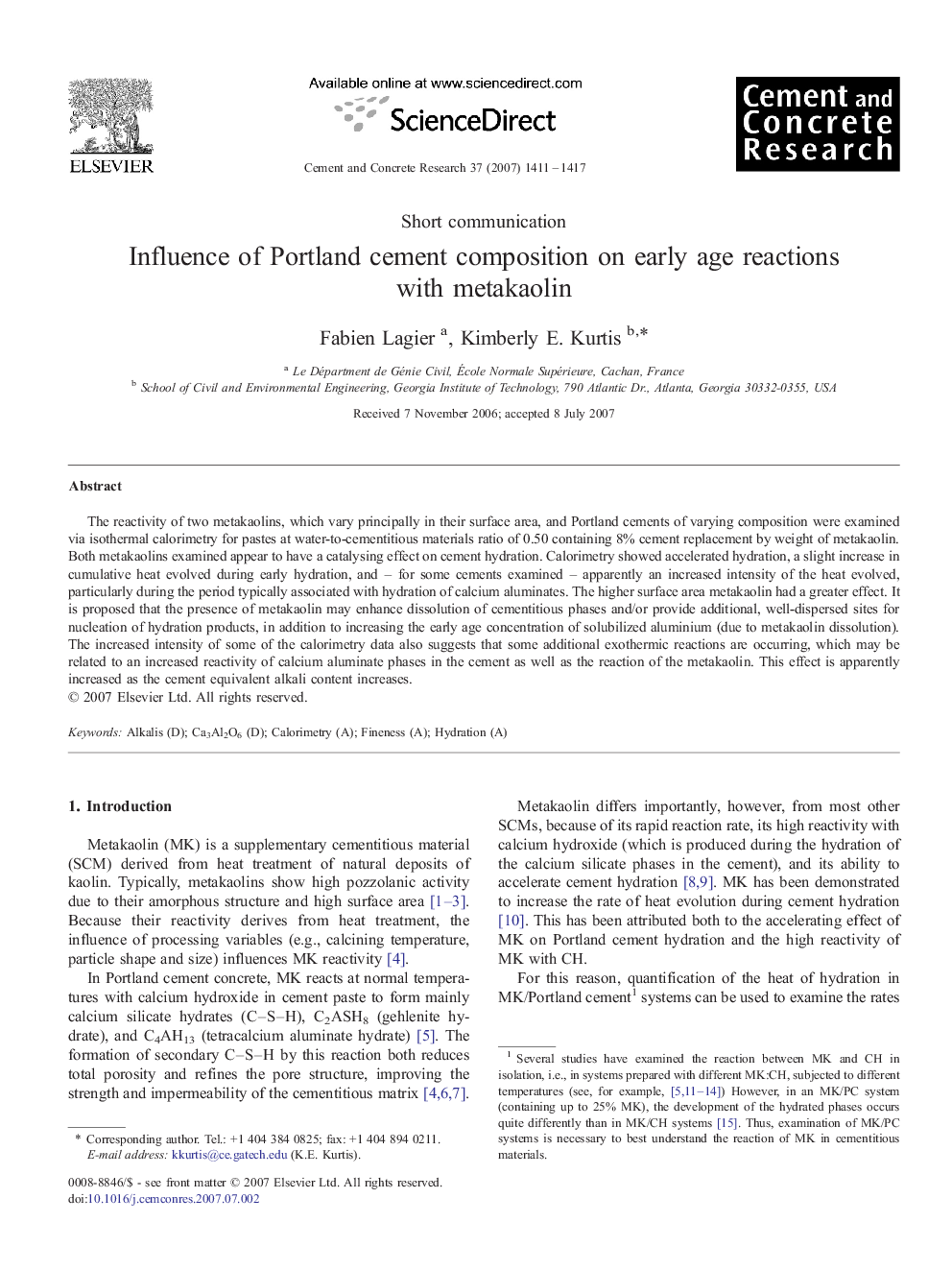| Article ID | Journal | Published Year | Pages | File Type |
|---|---|---|---|---|
| 1457591 | Cement and Concrete Research | 2007 | 7 Pages |
The reactivity of two metakaolins, which vary principally in their surface area, and Portland cements of varying composition were examined via isothermal calorimetry for pastes at water-to-cementitious materials ratio of 0.50 containing 8% cement replacement by weight of metakaolin. Both metakaolins examined appear to have a catalysing effect on cement hydration. Calorimetry showed accelerated hydration, a slight increase in cumulative heat evolved during early hydration, and – for some cements examined – apparently an increased intensity of the heat evolved, particularly during the period typically associated with hydration of calcium aluminates. The higher surface area metakaolin had a greater effect. It is proposed that the presence of metakaolin may enhance dissolution of cementitious phases and/or provide additional, well-dispersed sites for nucleation of hydration products, in addition to increasing the early age concentration of solubilized aluminium (due to metakaolin dissolution). The increased intensity of some of the calorimetry data also suggests that some additional exothermic reactions are occurring, which may be related to an increased reactivity of calcium aluminate phases in the cement as well as the reaction of the metakaolin. This effect is apparently increased as the cement equivalent alkali content increases.
